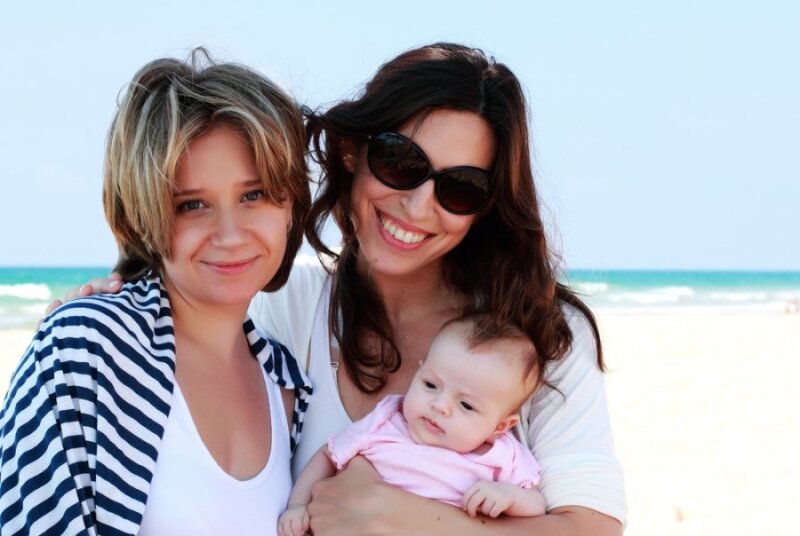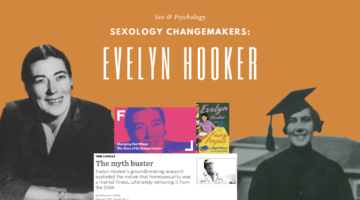Adopted Children Do Just As Well Regardless Of Their Parents’ Sexual Orientation
December 26, 2012 by Justin Lehmiller
Earlier this year, a study was released suggesting that children are better off when raised by heterosexual couples than by same-sex couples [1]. That study received widespread media attention, despite the fact that it was fundamentally flawed and really said next to nothing about the parenting skills of gay and lesbian parents (you can read more about my take on that study here). In contrast, a new study about adopted children just came out concluding that such kids do equally well irrespective of the sexual orientation of their parents. Although the newer study was far more academically rigorous, it was largely ignored by the mainstream media. In this post, I will review the findings of this study and discuss why the media just doesn’t seem to care about it.
In the new study, psychologists at UCLA examined the outcomes of 82 high-risk children (aged 4 months to 8 years) who were adopted out of foster care in Los Angeles, California [2]. Sixty of the children were placed with heterosexual parents, and 22 with gay or lesbian parents. Assessments of the children were made at two months, one year, and two years post adoption. At each time point, researchers assessed the children’s cognitive development (including their IQ), their level of internalizing problems (e.g., depression, anxiety, and social withdrawal), and their level of externalizing problems (e.g., delinquent behaviors and aggression).
In total, nine comparisons were made between the children of gay and straight parents (specifically, the researchers looked at the kids’ cognitive development, internalizing problems, and externalizing problems at each of the three time points) and found only one statistically significant difference. The nature of this difference was such that children adopted by gay and lesbian parents exhibited fewer internalizing problems after the first two months.
Overall, the researchers found that all children did well, showing gains in IQ and no increases in behavior problems across time. Thus, regardless of their parents’ sexuality, adopted children appear to benefit from having a stable home environment.
One other point worth mentioning about this study is that the gay and lesbian parents actually adopted higher-risk children than their heterosexual counterparts (i.e., the kids adopted by same-sex parents were more likely to have been born prematurely, to have experienced prenatal substance exposure, to have previously suffered parental abuse and neglect, etc.). The fact that these children did just as well as the children with fewer risk factors suggests that same-sex couples are actually quite good at parenting.
Of course, this study is limited in that it had a relatively small sample size, but the methods were sound and it makes an important contribution because it is the first longitudinal study of adopted children who have parents of varying sexual orientations. The findings of this study also fit well with the broader parenting literature, which has typically reported that there only very small differences or no differences at all between same-sex and heterosexual parents.
As for why this study did not become international news like the earlier study suggesting that straight parents have an advantage, the reason is simple: null findings do not make for sexy headlines. Saying that gay and straight parents are equal just does not generate the same kind of interest as a headline proclaiming that one group is superior to the other. The media jumps on any study that finds differences, running provocative headlines such as “Study: Children of Lesbians May Do Better than Their Peers” or “Study Finds Host of Challenges for Kids of Gay Parents.” Media outlets do not care about the direction of the difference—they just want to talk about some difference. Why? Because stories about differences get people on all sides riled up and bring in more readers. Personally, I think it’s sad that a methodologically poor study can generate global headlines just because it shows a difference, whereas a more sound study that concludes no difference is met with a collective shrug.
Unfortunately, the popular media’s bad behavior when it comes to science reporting is unlikely to change any time soon, and you’re sure to hear more provocative and conflicting headlines about same-sex parents and families in the New Year. However, when it comes to the topic of gay parenting, the take-home message is that there is simply no scientific justification for discriminating against same-sex parents.
Want to learn more about The Psychology of Human Sexuality? Click here for a complete list of articles or like the Facebook page to get articles delivered to your newsfeed.
[1] Regnerus, M. (2012). How different are the adult children of parents who have same-sex relationships? Findings from the New Family Structures Study. Social Science Research, 41, 752-770.
[2] Lavner, J. A., Waterman, J., & Peplau, L. A. (2012). Can gay and lesbian parents promote healthy development in high-risk children adopted from foster care? American Journal of Orthopsychiatry, 82, 465-472.
Image Source: 123rf.com
You Might Also Like:

Dr. Justin Lehmiller
Founder & Owner of Sex and PsychologyDr. Justin Lehmiller is a social psychologist and Research Fellow at The Kinsey Institute. He runs the Sex and Psychology blog and podcast and is author of the popular book Tell Me What You Want. Dr. Lehmiller is an award-winning educator, and a prolific researcher who has published more than 50 academic works.
Read full bio >


